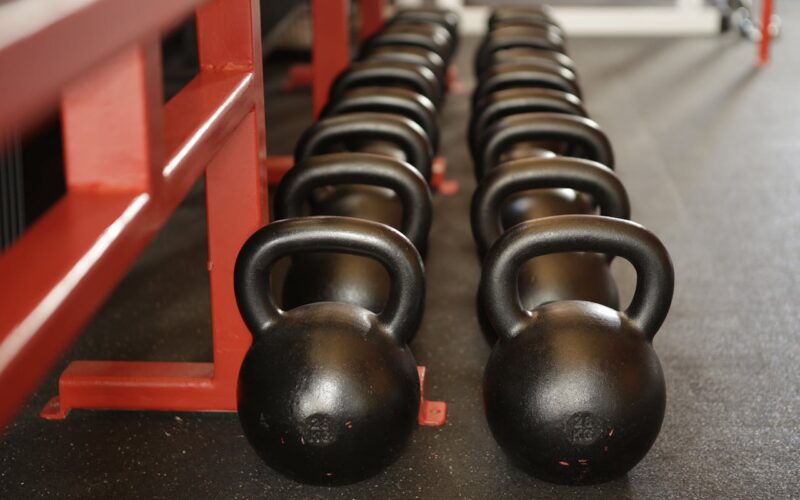Ulcerative colitis (UC), a chronic condition characterized by inflammation and sores in the colon, presents significant challenges to those it affects, impacting daily routines and overall quality of life. For many, exercise can seem like a daunting task, especially on days when symptoms flare. However, emerging research and personal testimonies suggest that weightlifting, when done correctly, can offer numerous benefits for individuals with UC. This article delves into how incorporating strength training into a fitness regimen can be both a feasible and beneficial endeavor for those living with ulcerative colitis.
The Potential Benefits of Weightlifting for Ulcerative Colitis
Weightlifting can offer multiple health benefits for individuals with UC. These benefits extend beyond physical fitness, potentially influencing the course of the disease itself:
Improved Overall Health
Regular physical activity, including weightlifting, improves cardiovascular health, increases muscle mass, and enhances overall fitness. For UC patients, these improvements can translate into better management of symptoms and a reduced risk of complications associated with prolonged inflammation, such as decreased bone density and muscle wasting.
Enhanced Mental Health
Living with a chronic illness like ulcerative colitis can take a significant toll on mental health, often leading to increased rates of anxiety and depression among sufferers. The constant management of fluctuating symptoms, along with the stress of coping with a long-term condition, can heighten psychological distress. Engaging in weightlifting has been shown to release endorphins, natural chemicals in the brain that act as mood lifters, which can help alleviate stress and foster a more positive mental state. Additionally, the routine of regular exercise can provide a sense of normalcy and control, which is particularly valuable when managing a disease that can feel unpredictable and disruptive. Thus, weightlifting not only strengthens the body but also empowers the mind, helping individuals with ulcerative colitis combat stress and build emotional resilience.
Reduced Inflammation
Although rigorous exercise can initially increase inflammation, engaging in regular moderate exercise has been demonstrated to lower levels of inflammatory markers over time. For individuals with ulcerative colitis, this reduction in inflammation can be particularly beneficial. It has the potential to lead to fewer disease flare-ups and milder symptoms, enhancing daily quality of life. This improvement is especially significant considering the chronic inflammation characteristic of UC, suggesting that sustained moderate exercise could play a key role in long-term disease management and symptom control.
Better Gastrointestinal Function
Exercise not only boosts overall health but also promotes healthy digestion, which is particularly beneficial for individuals with ulcerative colitis. Regular physical activity helps stimulate the natural contractions of the digestive tract, effectively accelerating the movement of food through the colon. This increased gastrointestinal motility can alleviate common UC symptoms such as bloating and constipation. By incorporating exercise into their daily routine, those with UC may find significant relief from these discomforts, contributing to a better quality of life and more effective management of their condition.
Navigating the Challenges
While the benefits are clear, weightlifting with ulcerative colitis isn’t without its challenges. Flare-ups, fatigue, and pain can often interfere with the ability to maintain a regular exercise routine. Additionally, there are specific risks associated with exercising during active flare-ups, such as increased bowel movements and abdominal discomfort.
Tailoring Your Workout
It is crucial for UC sufferers to tailor their exercise routines to fit their current health status. This might mean adjusting the intensity and volume of workouts to accommodate their body’s needs. During remission, heavier weights and more intense sessions might be possible, while during a flare-up, lighter, more frequent sessions may be more appropriate.
Listening to Your Body
Understanding and listening to one’s body is essential. If a workout exacerbates symptoms, it may be necessary to scale back the intensity or take a break altogether. Hydration is particularly crucial, as UC patients are at an increased risk of dehydration, especially if the colon is inflamed.
Consultation with Healthcare Providers
Before starting any new exercise regimen, particularly one involving weightlifting, it is important for UC patients to consult with their healthcare providers. A doctor or physical therapist can help develop an exercise plan that considers the specifics of their condition, current fitness level, and overall health goals.
The Therapeutic Benefits of Exercise in Managing Ulcerative Colitis
Is Weightlifting for You?
For individuals with ulcerative colitis, weightlifting can offer significant benefits, from improving physical and mental health to potentially reducing the impact of the disease itself. However, it requires careful management and personalization of the exercise routine. With proper guidance and a thoughtful approach to workout intensity and frequency, weightlifting can be a valuable addition to the lifestyle of someone managing UC. It stands as a testament to the power of resilience and the importance of maintaining physical strength, even in the face of chronic illness.


